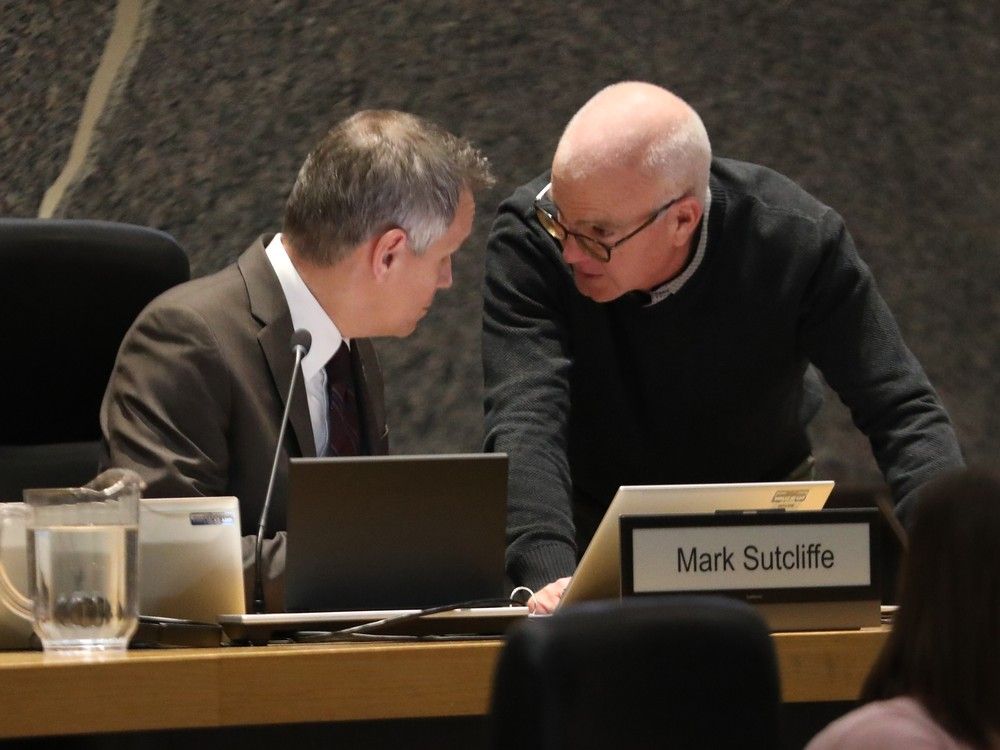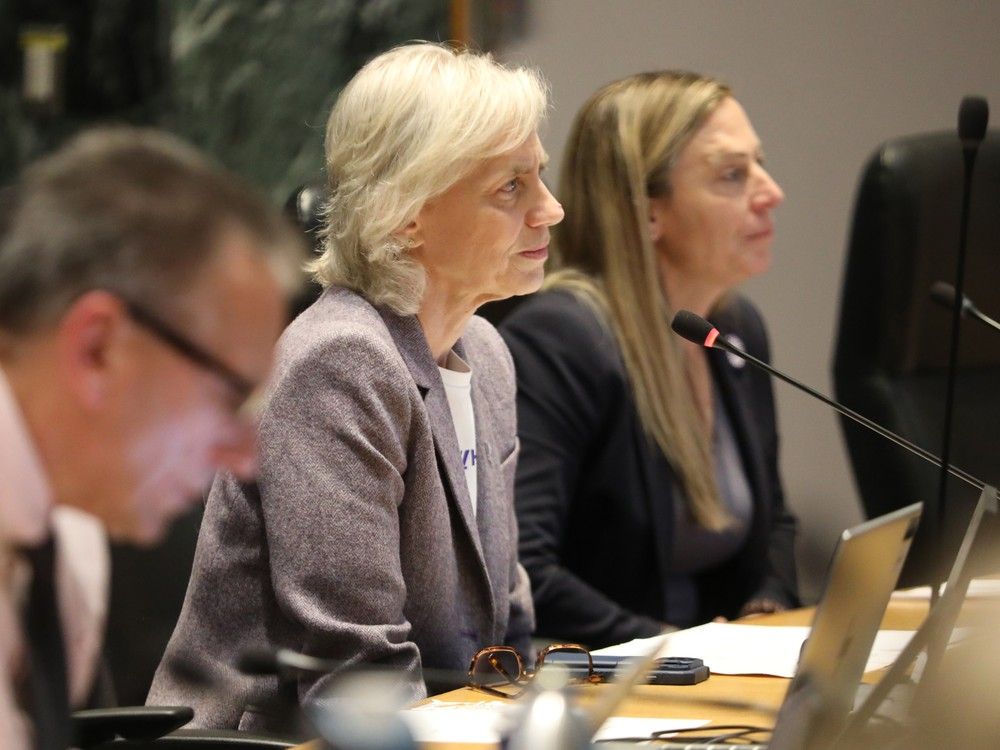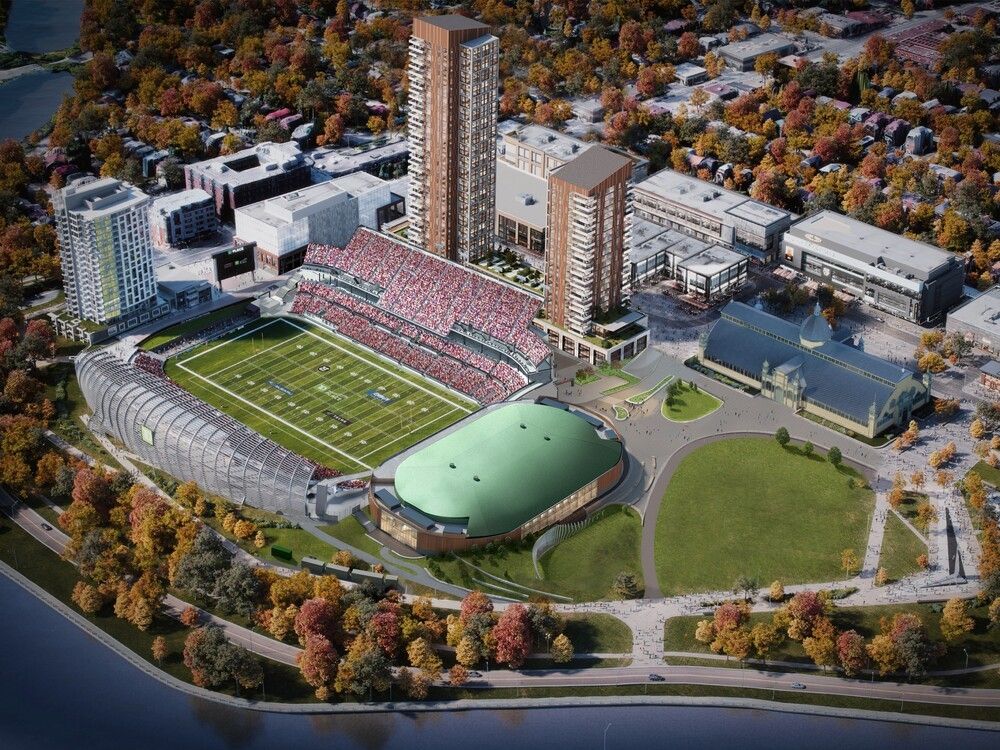The
Lansdowne 2.0 redevelopment plan
was approved following a marathon two-day committee session and will now head to council on Nov. 7 for a final vote.
The city’s finance and corporate services committee heard a
steady stream
of
sharply divided opinions
on the
Lansdowne redevelopment
, which comes at a $418.8 million price tag and with taxpayers on the hook for $130 million.
Plans call for the demolition of the north-side stands and the old Ottawa Civic Centre, with the stadium stands to be rebuilt adjacent to two new condominium towers. A new hockey arena, which will double as an
event centre
for concerts and other cultural events, will be constructed behind the east end of the TD Place Stadium end zone.
The north-side stands will have capacity for 12,400 with improved accessibility standards. A significant number of accessibility advocates were among the 88 public delegations who signed up to speak to the committee and praised the modern, accessible design.
City staff are projecting a 22 per cent increase in attendance at TD Place once construction is complete.

On the first day of the Lansdowne 2.0 debate on Oct. 29, which lasted more than 10 hours, much of the attention focused on delegates from the Ottawa Charge and the Professional Women’s Hockey League, who told the committee they had been left out of conversations on the capacity for the new arena and event centre.
Plans call for 5,850 seats in the arena with standing room, bringing capacity to 6,600 for hockey games, which drew the ire of the PWHL, as capacity at the old Civic Centre (now the TD Place Arena) is about 9,800.
Local music industry insiders applauded plans for the new event centre, which will have an expanded capacity of 7,000 for concerts and other cultural events.
Longtime local promoter Ken Craig told the committee the city has long been missing a mid-sized concert venue.
There is “a clear gap in Ottawa’s venue ecosystem” between the 2,065 seats at the National Arts Centre’s Southam Hall and the 17,000 concert capacity at the Canadian Tire Centre, said Canadian Live Music Association CEO Erin Benjamin.
Live Nation Canada vice-president Ali Shafaee said the entertainment giant “tends to skip over” Ottawa on its tour schedules due to the lack of an appropriate midsize venue.
The Civic Centre, which was constructed in 1967 and is among the oldest remaining junior hockey arenas in the province, has been plagued by problems and is not a favourable destination for concerts, Craig told the committee.

A large number of public delegations voiced their opposition to the deal and the extended partnership with the Ottawa Sports and Entertainment Group, which operates the venues and owns the two primary tenants, the Ottawa 67’s and the Ottawa Redblacks.
Coun. Shawn Menard, whose Capital ward is home to Lansdowne Park, has been among the fiercest critics of the deal with OSEG, which is set to extend until 2075.
Menard questioned city staff on the complex financial agreement with OSEG and pointed out that taxpayers will be responsible for covering any construction cost overruns.
A number of opponents said the partnership between the city and OSEG has posted net financial losses for every fiscal year and has yet to generate positive cash flows under the Lansdowne 1.0 partnership, which was signed in October 2012.
Despite having a “successful year” with 188 events at TD Place, Lansdowne Park had an overall net loss of $11.1 million for the fiscal year ending March 31, 2025.
City staff confirmed the Lansdowne 2.0 will incur $331 million in debt, which the city will take on, but that figure would balloon to $694 million with interest and refinancing over the lengthy term of the deal. The city will service that debt by paying $17.3 million annually, staff told the committee.
The redevelopment is divided into three phases, with the first phase focusing on building the new event centre and Great Lawn, beginning in November and extending to July 2028.
Phase two, from November 2028 to 2030, would involve the complete redevelopment of the north-side stands and the surrounding infrastructure. The third phase would begin in 2031 with the construction of the new retail podium and two mixed-use towers with condominium, rental and hotel space with 770 units. The towers would include a “grand entrance” to the adjacent stadium and parking, and is scheduled to be completed by the end of 2034.
Menard was among 12 councillors who pleaded for more time to digest the volume of documents that were released to the public outlining the Lansdowne 2.0 plans. That motion failed at council on Oct. 22.
Mayor Mark Sutcliffe dismissed the notion of taking more time to consider the project before voting on whether to proceed with the deal.
“In this case, what’s clear is not a lot has changed since the last version we voted for in 2024 or the previous version we voted for in 2023,” Sutcliffe said during a press conference held in the middle of the first day of debate on Oct. 29.
“A lot of the facts are the same in terms of the plan to move forward… Some of the financial terms are even better than we thought they were going to be,” he said.
“We obviously have enough time to make the decision, because several councillors have already indicated how they’re going to vote. So they clearly don’t need more time. Several members of city council have already gone public and said, I intend to vote this way on this project. So another week, I’m assuming, would not change their minds.”
Lansdowne 2.0 ultimately passed through the committee by an 8-3 vote with Menard, Couns. Jeff Leiper and Rawlson King voting against the proposal.
Couns. Matthew Luloff, Laura Dudas, Cathy Curry, Glen Gower, Tim Tierney, David Brown, Catherine Kitts and Sutcliffe voted in favour.
A final vote on the project will be held at a special council session on Nov. 7.
Related
- Here’s what you need to know about the complex financing of the Lansdowne 2.0 deal
- PWHL says it didn’t get place at the table to negotiate larger Lansdowne arena



